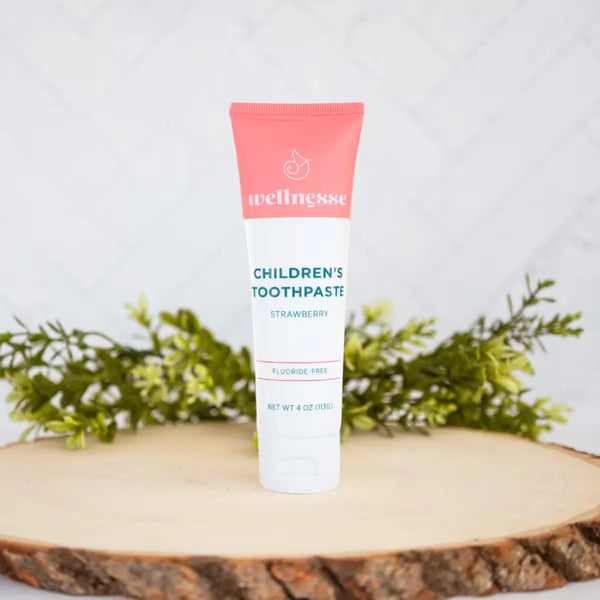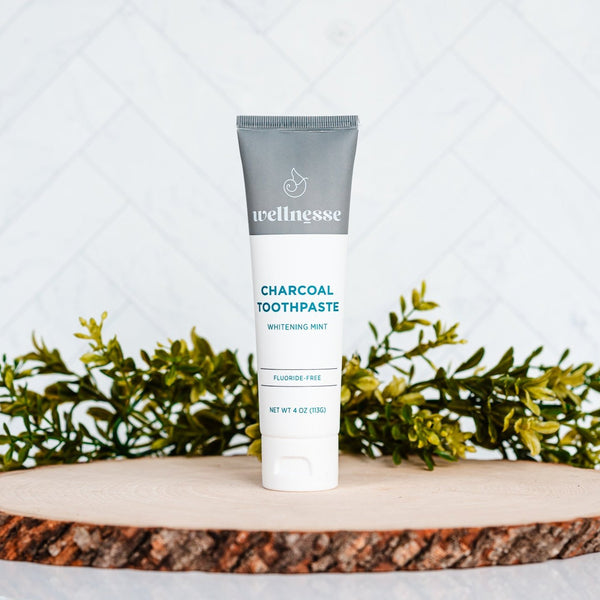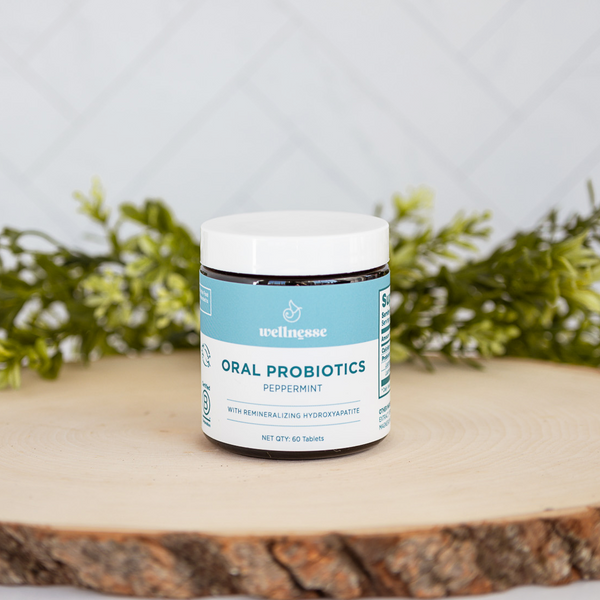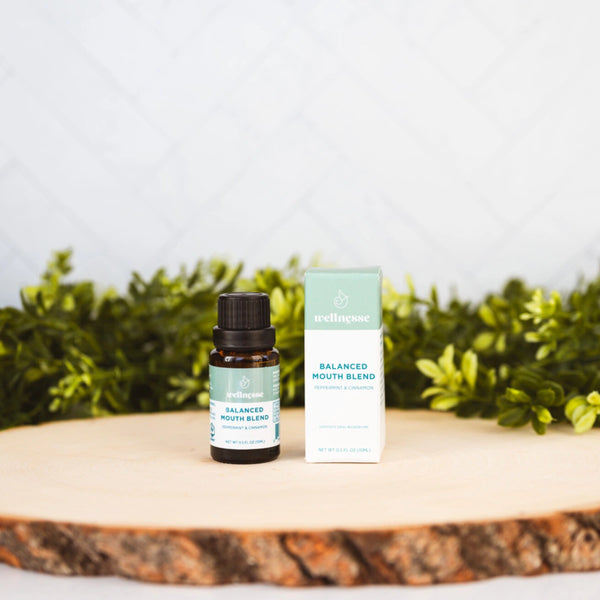It’s something we do all day, everyday, but when was the last time you actually thought about how you breathe?
Breathing is automatic—so it’s easy to assume we’re doing it right. But here’s the truth: how you breathe impacts your oral health —and many of us are doing it wrong.
What about you? Do you find that you are a mouth breather? Or do you breathe through your nose?
Mouth breathing has become an invisible epidemic. Not only does it affect our sleep, but also our teeth, our memory, and even our face shape. The good news? Simply learning to breathe the right way can unlock big improvements in your oral health.
Let's Start at the Beginning
Breathing through your mouth may seem harmless. But over time, it disrupts the delicate balance of oral and systemic health. To understand how mouth breathing can be detrimental to our health, we first need to talk about an important component of our mouth: saliva.
Saliva isn’t just that wet stuff in our mouth. It’s very diverse and contains bacteria, fungi, viruses, hormones, cortisol, enzymes to help with digestion, immune cells, minerals, and much more. And hopefully all of those things are in the right balance.
While we don't often think about our saliva, it’s vital for a healthy mouth.
We need it to chew, to jumpstart digestion, and break down food. It’s also necessary for a healthy mouth pH to keep things balanced and neutral. Saliva plays another crucial role in keeping our mouths moist. A dry mouth poses much more risk than simply feeling uncomfortable.
If we understand how necessary saliva is to our overall health, then the next question should be.....
What Happens When You Have Low Saliva (Dry Mouth)?
Not only does a dry mouth not feel great, but a constant dry mouth (low saliva) means teeth can degrade really quickly. This is because saliva acts as a director of our mouth pH. When you eat or drink, saliva becomes acidic to jumpstart the digestive process. And when our mouth is in that acidic state, tooth decay starts to happen. The good news is that once you’re finished with your meal, saliva pH neutralizes and becomes more alkaline.
So if healthy saliva levels in our mouth are so important, why do some of us have inadequate amounts?
Enter Mouth Breathing
While certain medications can affect saliva, a common culprit of dry mouth is mouth breathing. As humans we’re designed to breathe through our nose, but up to 50% of us breathe through our mouth. When we breathe through our mouth, our airway and mouth are wide open and will naturally dry out.
You get about 20% more oxygen when you breathe through your nose. And not only does it help prevent dry mouth, but nasal breathing drastically impacts brain function. Those who breathe through their nose have better memory recall, less brain fog, and are less likely to be sleepy during the day. It makes sense - If you oxygenate your brain better, you think better.
Children who are in the habit of mouth breathing can have increased behavioral issues. While some professionals tend to label them with ADHD, in reality they’re not getting enough oxygen at night. It can also cause sleep apnea and trouble breathing at night, which disrupts deep sleep and ultimately impacts their mood and behavior.
Here’s what happens when you rely on your mouth to breathe—especially while sleeping:
-
Dry mouth and less saliva: Saliva protects your mouth by neutralizing acids and shuttling minerals to teeth. Mouth breathing dries it out, leaving your mouth acidic and vulnerable to decay.
-
More harmful bacteria: A dry mouth becomes a breeding ground for bacteria that cause cavities, bad breath, and gum disease.
-
Poor sleep quality: Mouth breathing is associated with snoring, sleep apnea, and interrupted sleep cycles. Poor sleep impacts your mood, energy, memory, and cognitive tasks. Some health experts warn it can also contribute or lead to chronic health conditions.
-
Swollen glands - Since our nose is supposed to act as a filter, the tonsils pick up the slack when we mouth breathe. This can lead to swollen tonsils and adenoids, tonsillitis, airway restriction, and more frequent illness.
-
Facial and dental changes: In children, chronic mouth breathing can lead to narrow jaws, misaligned teeth, and long-term airway issues. This has a domino effect that can also affect how the eyes and inner ear develop, causing vision and hearing changes. Mouth breathers also tend to have darker teeth.
Why Nasal Breathing Is a Superpower
Your nose isn’t just a breathing tube—it’s a built-in air purifier, humidifier, and immune system ally. Nasal breathing activates a cascade of health benefits.
Nose hairs trap dust, allergens, and microbes before they reach the lungs. Your nose is an amazing filtering system. Nasal breathing slows your breath, allowing for deeper, more efficient oxygen absorption.
When you breathe through your nose, your tongue naturally rests on the roof of your mouth, which is key for jaw development and airway health.
Nasal breathing also helps maintain the right environment for your saliva to do its job—keeping your mouth clean, balanced, and protected.
How to Know If You’re a Mouth Breather
Here are some clues that you might be mouth breathing (especially during sleep). Do you have a dry mouth when you wake up during the night or in the morning? Do you feel like you suffer from bad breath? Does your bedroom partner tell you that you snore? Do you wake up tired or foggy headed even after a full night’s sleep? Do you have tooth decay, despite good oral hygiene?
How to Train Yourself to Breathe Through Your Nose
Yes, you can retrain your body to breathe correctly. Here are some simple, safe starting points:
Try the 3-Minute Nasal Breathing Test
Sit still and breathe only through your nose for three minutes. If it feels uncomfortable, that’s a sign your nasal breathing needs support. This could be due to allergies, swollen glands, structural issues, like a deviated septum, or other problems.
Experiment With Mouth Taping
Using a small piece of tape across the center of your lips at night (with guidance from a healthcare provider) can gently encourage nasal breathing during sleep. Before you mouth tape, try the above mentioned 3 minute test. You should be comfortable breathing with your mouth closed for 3 minutes in order to try mouth taping. Talk with your child’s healthcare provider before trying mouth tape with them. Young children have smaller airways and mouth taping may not be a safe option for them.
Eat More Whole Foods
Crunchy vegetables, meat (especially on the bone!), and fibrous fruits strengthen jaw muscles and promote healthy airway development—especially in children. With modern foods like mac and cheese, lunch meat, canned food, and soft bread, we’re chewing less than our ancestors.
Our mouths need that up and down movement to open up our nose and sinuses. Chewing motions develop the muscles and bones of the face, allowing for more room in your nasal cavities, sinuses, and pharynx. That room can help with sinus issues, and even breathing disorders.
Explore Myofunctional Therapy
These are targeted exercises for your tongue, lips, and face to support proper posture and function. Think of it like physical therapy for your airway. You can even find myofunctional therapists who have experience working with younger children.
A Word for Parents
Mouth breathing in children is more than a bad habit—it can be a red flag. If your child snores, breathes through their mouth, or seems tired and unfocused during the day, it’s worth digging deeper.
Pediatric dentists, orthodontists, and airway-focused providers can help identify early signs and create personalized plans for prevention and correction.
Breathe Better, Feel Better
Nasal breathing may sound simple, but it has a profound impact on our health. From stronger teeth and better sleep to improved energy and focus, the benefits ripple through every part of your body.
So the next time you catch yourself breathing through your mouth, close it, take a deep breath through your nose—and know you’re taking one small step toward better health.
Want to learn more about oral health, functional breathing, and the mouth-body connection? Subscribe to our newsletter or check out our other blog posts!
-
Jung, J. Y., & Kang, C. K. (2021). Investigation on the Effect of Oral Breathing on Cognitive Activity Using Functional Brain Imaging. Healthcare (Basel, Switzerland), 9(6), 645. https://doi.org/10.3390/healthcare9060645
-
BDJ Team. (2022). As Easy as Breathing. 9, 32–33.
-
Ramirez-Yanez, German. (2023). Mouth Breathing: Understanding the Pathophysiology of an oral habit and its consequences. Medical Research Archives. 11(1).











